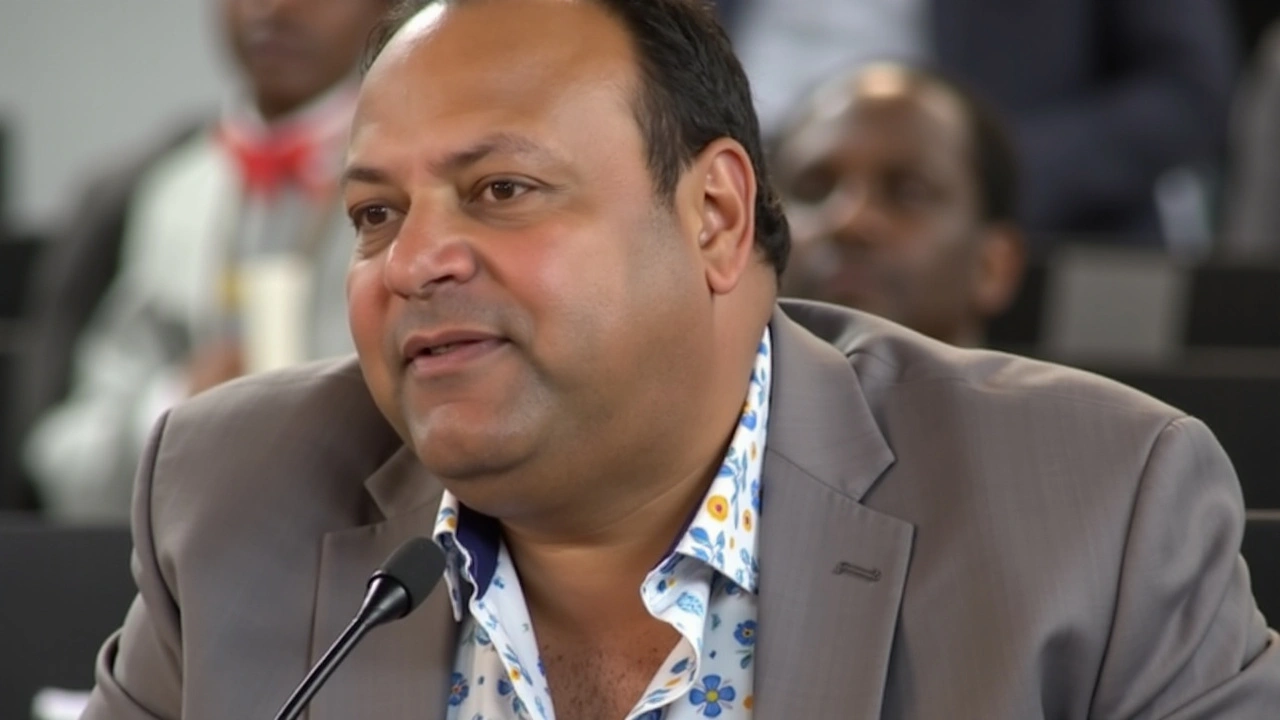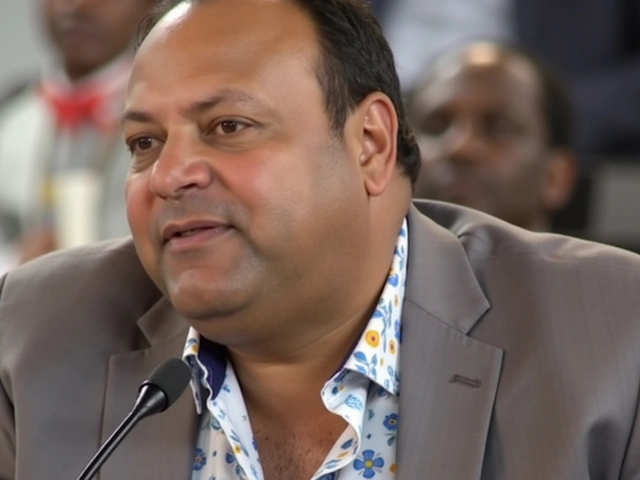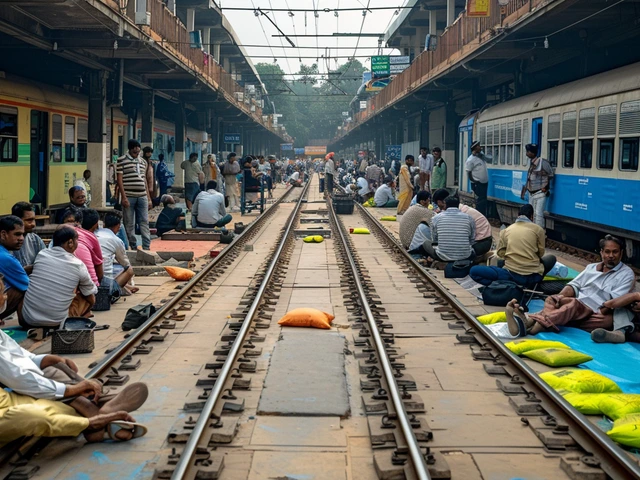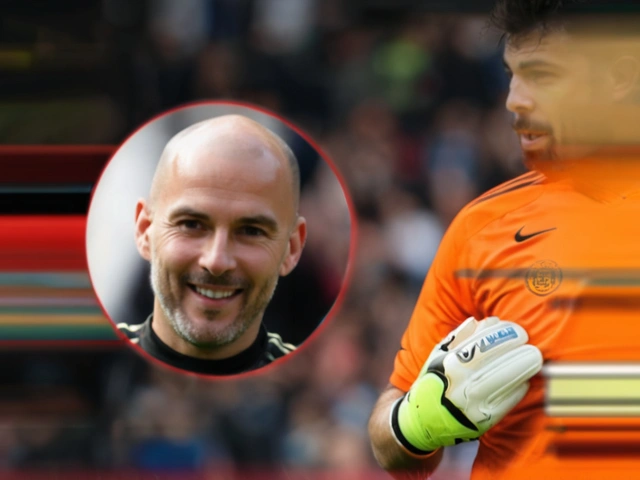Interrogation of Ferdinand Waititu by DCI
In an unexpected turn of events, former Kiambu Governor Ferdinand Waititu found himself at the center of a political and legal storm. He was detained and interrogated by the Directorate of Criminal Investigations (DCI) over comments he made concerning President William Ruto. The specifics of the comments that triggered this intensive scrutiny remain unclear. This development underscores the simmering political tensions in Kenya, especially between the Azimio coalition and the government led by President Ruto.
Legal Representation and Intensive Questioning
Accompanied by his lawyer, Ndegwa Njiru, Waititu endured hours of questioning at the DCI headquarters. The entire episode has drawn significant media attention, reflecting the critical nature of the situation. As the interrogation proceeded, media houses, political analysts, and the public waited with bated breath for the outcomes. However, the exact content of Waititu's remarks that led to this development has not been disclosed to the public, fueling speculation and raising numerous questions. The lack of transparency in such high-profile investigations is often a matter of concern, potentially impacting public trust in the judicial process.
Azimio Leaders Denied Access
During the questioning, it was noted that leaders from the Azimio coalition, led by Raila Odinga, were denied access to Waititu. This denial further heightens the palpable tension between the opposition coalition and the current government. The Azimio leaders expressed their frustration and concern over this treatment, viewing it as a clear sign of the increasingly adversarial political climate in the country. Such actions are bound to deepen the rift, making reconciliation and political stability more challenging to achieve.
Backdrop of Political Activity
This incident comes amidst a backdrop of heightened political activity in Kenya. The recent protests and rallies have not only sparked concerns over security but have also brought the issues of political stability and governance into sharp focus. The streets have become a vibrant arena for citizens expressing their frustrations and hopes, often leading to clashes and a heavy presence of law enforcement. Concerns about the security and safety of demonstrators and leaders alike have been raised multiple times, and the questioning of Waititu only adds fuel to the already blazing political fire. People are now looking to both sides to find a path to dialogue and peaceful resolution.
Ongoing Political Tensions
The ongoing tensions between the Azimio coalition and President Ruto's administration are not new. However, incidents such as the interrogation of Waititu bring these tensions into sharper relief. The political landscape in Kenya has been marked by a series of confrontations, legal battles, and public demonstrations. Efforts to bridge the divide have been met with limited success, and there is a growing call for both sides to engage in meaningful dialogue. The future of Kenya's political stability hinges on the ability of its leaders to find common ground and ensure that the rule of law is upheld without bias.
Impact on Political Landscape
Observers are closely watching to see how this situation unfolds and what implications it might have for the broader political landscape. The interrogation of a former governor over remarks about the sitting president is a significant event, one that could set a precedent for how political discourse is managed in the country. There are fears that such actions might stifle free speech and discourage open political dialogue. At the same time, there is a need to balance this with ensuring that false or inflammatory rhetoric does not incite violence or unrest.
Response from the Public and Media
The public reaction has been mixed, with some supporting the government's actions as a necessary step to maintain order, while others view it as an overreach and a sign of deteriorating political freedoms. Media coverage has been extensive, with various outlets providing different perspectives on the situation. Social media platforms have also been abuzz with discussions, debates, and sometimes, misinformation. The role of the media in shaping public opinion during such times cannot be overlooked, and it is crucial for journalists and news outlets to adhere to ethical standards and provide unbiased reporting.
Call for Dialogue and Resolution
As Kenya navigates through this politically charged period, there is a strong call from various quarters for dialogue and peaceful resolution of conflicts. The country's history has shown that prolonged political strife can have adverse effects on social and economic stability. Leaders are being urged to rise above partisan interests and work towards a united and prosperous Kenya. The involvement of civil society, religious leaders, and other stakeholders can play a pivotal role in mediating and finding a way forward.
Looking Ahead
In conclusion, the interrogation of Ferdinand Waititu over comments about President Ruto, and the subsequent denial of access to Azimio leaders, serve as a stark reminder of the complexities and challenges in Kenya's political arena. This incident is a snapshot of the broader issues at play, including the struggle for political dominance, the quest for justice, and the fight for democratic freedoms. As the country stands at this critical juncture, the actions and decisions of its leaders will have profound implications for the future of its democracy and the well-being of its citizens. The world watches as Kenya attempts to navigate these turbulent waters, hoping for a peaceful and just resolution that will pave the way for a brighter and more stable future.






Post A Comment